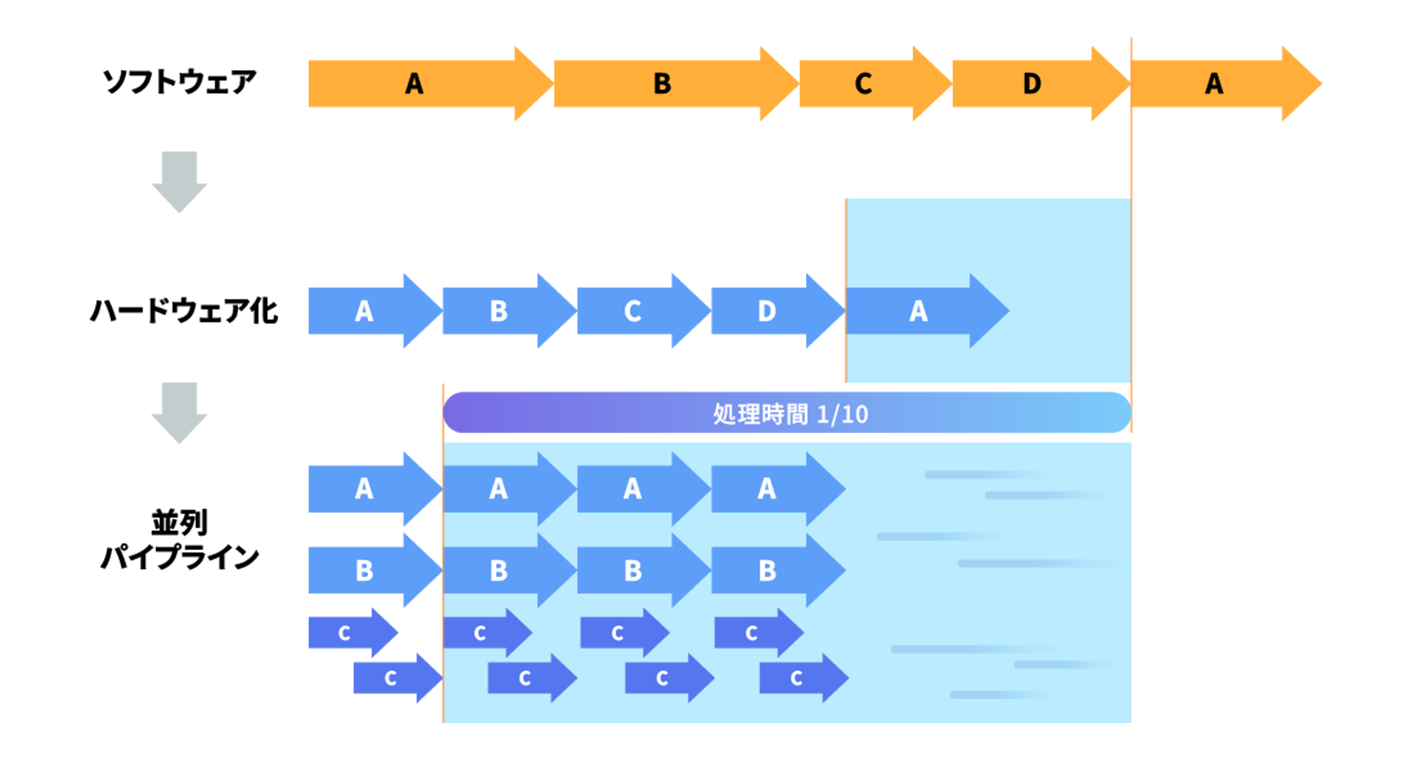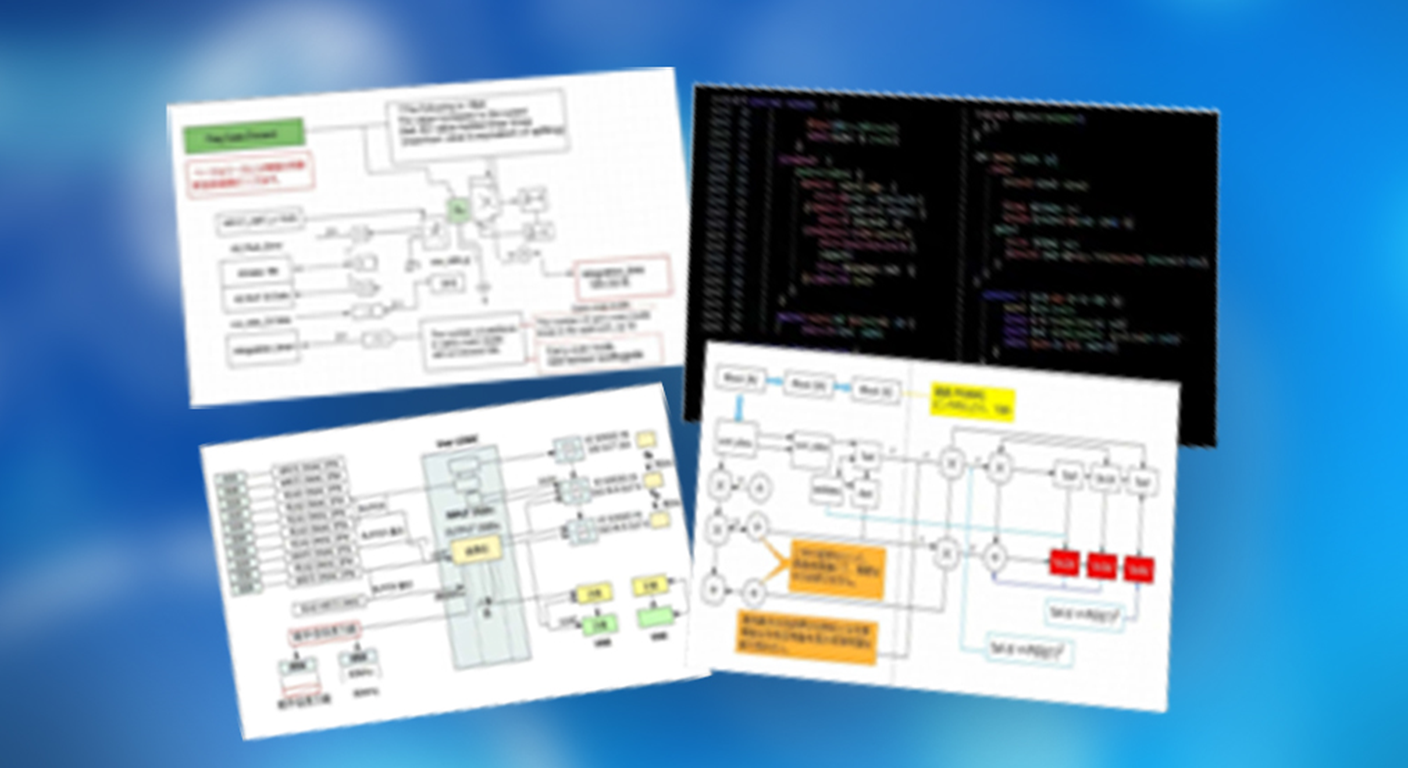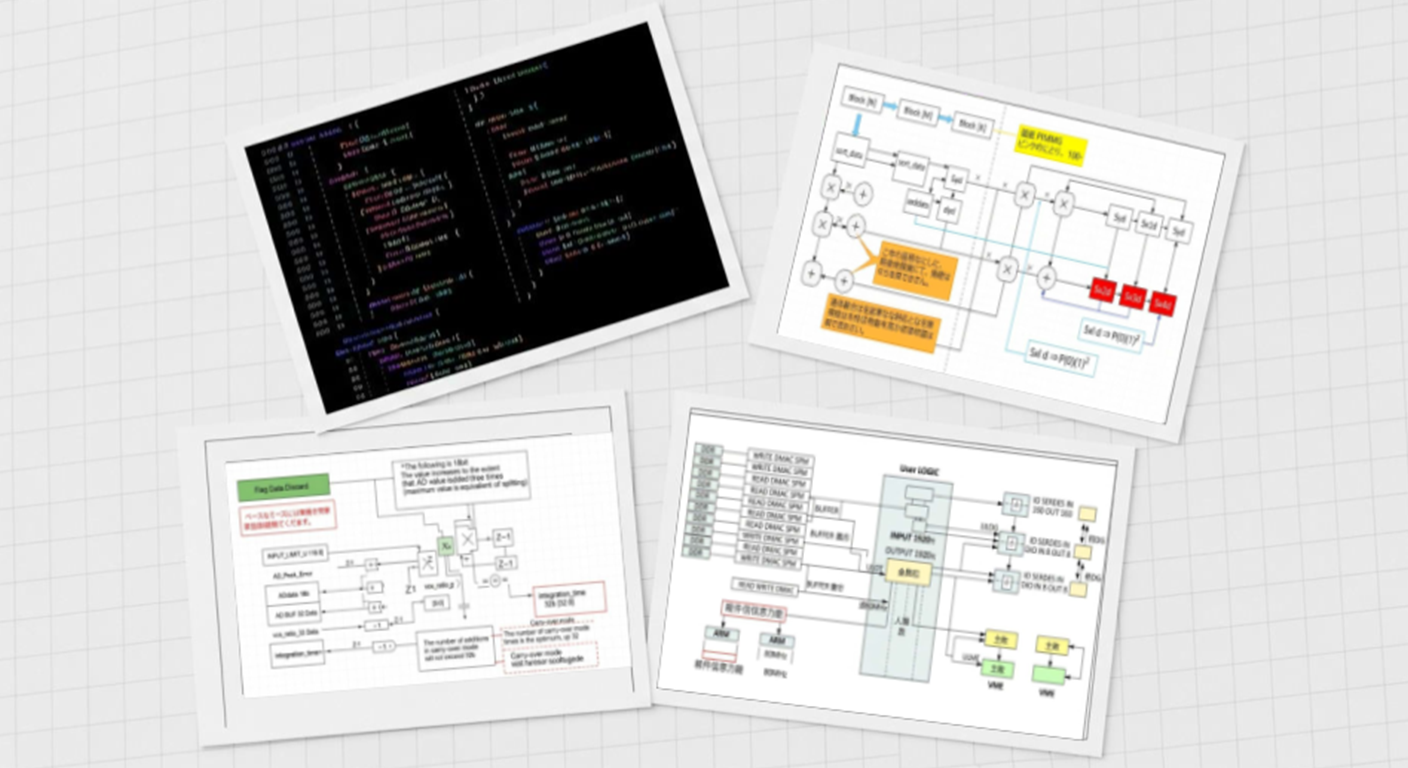Benefits of FPGA Acceleration
Custom Accelerator Development

For customers facing the limits of CPU processing.
Achieve dramatic
performance improvements with custom accelerators tailored to your application. We develop custom
accelerators for your needs, such as image processing, communication control, and scientific and
technical computing, and achieve throughput on FPGAs that is difficult with CPUs.
Advantages of Using FPGAs

For customers developing systems that require real-time performance.
The
parallel processing capabilities of FPGAs enable ultra-high-speed data processing that is impossible
with CPUs. FPGAs can implement pipeline and parallel processing at the hardware level, achieving
dramatic performance improvements in fields such as real-time image processing and scientific and
technical computing that require large amounts of data processing.
Ensuring System Performance

For customers who require deterministic processing times and shorter development
periods.
Our experienced hardware engineers design an architecture with
optimized computational latency to guarantee system performance. Hardware computation results in
fixed processing times (no fluctuations), ensuring system performance (specifications). This frees
you from the effects of jitter during development (such as unexpected processing delays due to
overload and margin design).
Altera Solution Acceleration Partner

A partnership of trust and achievement.
We are an Altera Solution Acceleration Partner (ASAP). Leveraging our deep knowledge and extensive development experience with Altera FPGAs, we provide our customers with optimal solutions.
Lattice Partner Network
A partnership of trust and achievement.
Leveraging our deep knowledge and extensive development experience with FPGAs, we provide our customers with optimal solutions.


